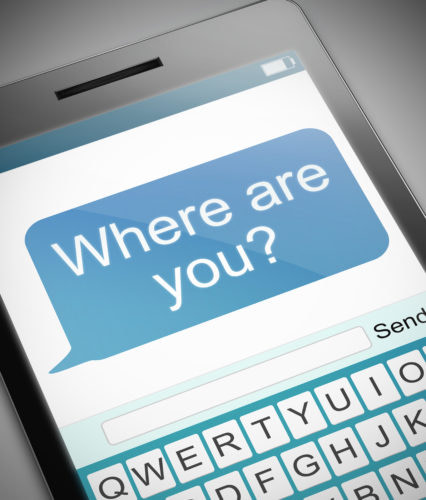
Dear Ms. Smartphone: Is this bad phone behavior or am I right? Is it necessary to get up in the morning and check first thing for messages? My son drives a truck for a living and lives a few hours away. He got mad when I didn’t look at an early morning text he sent from the road. He was nearby and planned to stop in for breakfast and a swim in the pool. But I had my coffee, read the newspapers, and did an errand so I missed him. He was upset. Stella, Vallejo
Dear Stella, I love getting questions about “bad phone behavior” but in this case I can’t decide if the “bad phone behavior” is on him or on you!
I imagine that you are from a generation that does planning in advance, and is not accustomed to last minute changes in the itinerary. That makes sense in the days before smartphones, and that was barely twelve years ago. If you had to meet someone, say at a train station or in a foreign city, you set up a fixed spot (always under the train clock!) where you would find each other. And, you demarked the precise time. If one of you got delayed, you had a backup plan like circle back to the clock in two hours time.
In fact, an early study of flip phones communications showed that most of the messaging back and forth was advance planning of places and times to meet.
Just in Time Meet-UP:
Now, with smartphones that exigency has flown out the window. We can do “just in time” meet-ups or even let someone follow our travel route in real time. There are fewer slipups and we can be more spontaneous about getting together as your son was. But, it also means that we can be more capricious. Perhaps you have friends that want to set up a time to meet, and then, just a few minutes before, they text that they are stuck in traffic, etc.
But, your question about “text in the morning” gets to a deeper question. At what time, or times of the day are we required to be “reachable” by phone, and what time of the day are we off-line? Previously I have lauded The Digital Sabbath, Tiffany Shlain’s counsel that we take family time once a week, to be completely offline.
BuFFER TIMES:
Perhaps we need additional buffer time, say early in the morning and late in the evening to be offline too? It is not a new idea, and thought leaders like Cal Newport have cited the need to bring deliberation and focus to these bookended hours. Imagine the bookends as an OFF switch in which you stay ON!
Clearly if you are in sales and you are expected to be online, you and your boss have to work out the hours in which you will take a call. And, if you drive a truck and are on the clock, you are scanning for traffic and your next haul. But, if you are drinking your coffee and reading your newspapers (yay), then I don’t see why the inner voice to check messages takes precedent.
TWO APPROACHES:
Fortunately, there are two ways that you and your son can connect better for the future. One is old tech and the other is new. First, new tech. Phones have a feature called “Do Not Disturb.” Here, under settings, you set a time period in which you will not receive phone calls and notifications. However, you denote exceptions for certain people, like family members or emergencies. If you organize your phone’s settings this way, the notification from your son will ring through.
The other way to connect with him is old-school but it makes planning airtight. Ask him to ‘put a ring on it.’ It’s an old idea but a single ding-ding call now and then can replace a thousand texts and misunderstandings.

Leave a Reply
You must be logged in to post a comment.